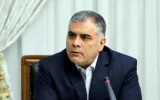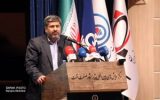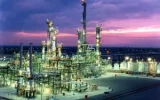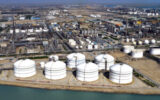
The Oil Minister, stating that our dear colleagues in various sectors of the oil industry are with the system, emphasized: The process of oil sales continues as before.

The CEO of the National Iranian Gas Company, referring to the coordinated and favorable performance in the gas production chain to refining, announced the injection of 117 million cubic meters of natural gas into the country's power plants.

The Minister of Petroleum stated that in order to supply gas to power plants, we have delivered a cumulative 3.5 billion cubic meters of gas to power plants since the beginning of this year, and added: "Also, liquid fuel has been supplied to power plants in appropriate and stable volumes so that our dear compatriots do not face any problems or shortages in terms of electricity supply and their electricity needs are fully provided."

Bandar Imam Petrochemical, the beating heart of the downstream chain of Iran's petrochemical industry, is currently facing a $1.4 billion project; a project that, in relation to the company's 8 trillion tomans profit, has raised serious questions about the economic logic, financing method, and the silence of Persian Gulf Holding.

The Director of Research and Technology of the National Iranian Oil Company, announcing that more than 51% of the country's recoverable oil reserves have been harvested, emphasized: the countries of the region have moved with increasing speed towards the use of new technologies for increased harvesting, and Iran is bound to accelerate the development and localization of these technologies in order to protect the remaining reserves and sustainable production.

Shamal Drilling Company, the exploratory drilling contractor in the Caspian Sea, announced an increase of 25% of the initial contract amount in some contract cases with the Caspian Oil Company.

The investment manager of the National Petrochemical Industry Company said: We are obliged to solve as many challenges and problems as possible so that the development of the industry takes place, because the petrochemical industry accounts for about 8% of the gross domestic product and 30% of non-oil exports are made from the petrochemical industry.

The last condition of Mohsen Paknejad for the implementation of the Azadegan oil field contract is to deposit 800 million dollars to the account of Dasht Azadegan Arvand Company. A condition that banks have been unable to fulfill until today.

The CEO of the National Iranian Petroleum Products Refining and Distribution Company, emphasizing the move towards data-driven management and smart fuel chain, said: "The opportunity for technological and data-driven work in the refining and distribution industry is very broad. What is important in this path is the right direction, prioritizing issues, and defining effective cooperation models."

Persian Gulf Petrochemical Industries Holding, as the second largest petrochemical holding in the Middle East and the largest player in this industry in Iran, plays a key role in meeting domestic needs and the international standing of this industry, with more than one-third of the nominal capacity of the country's petrochemical industry.










